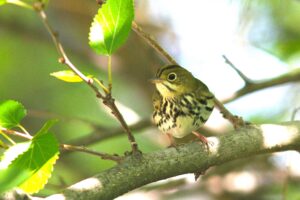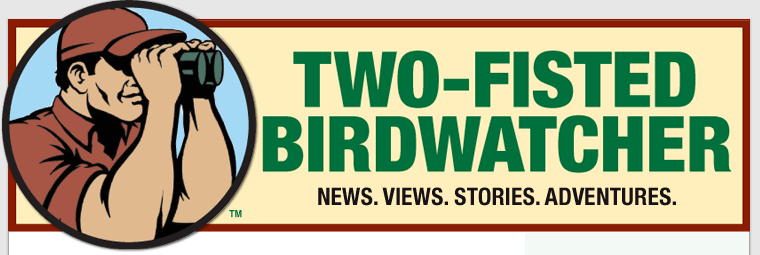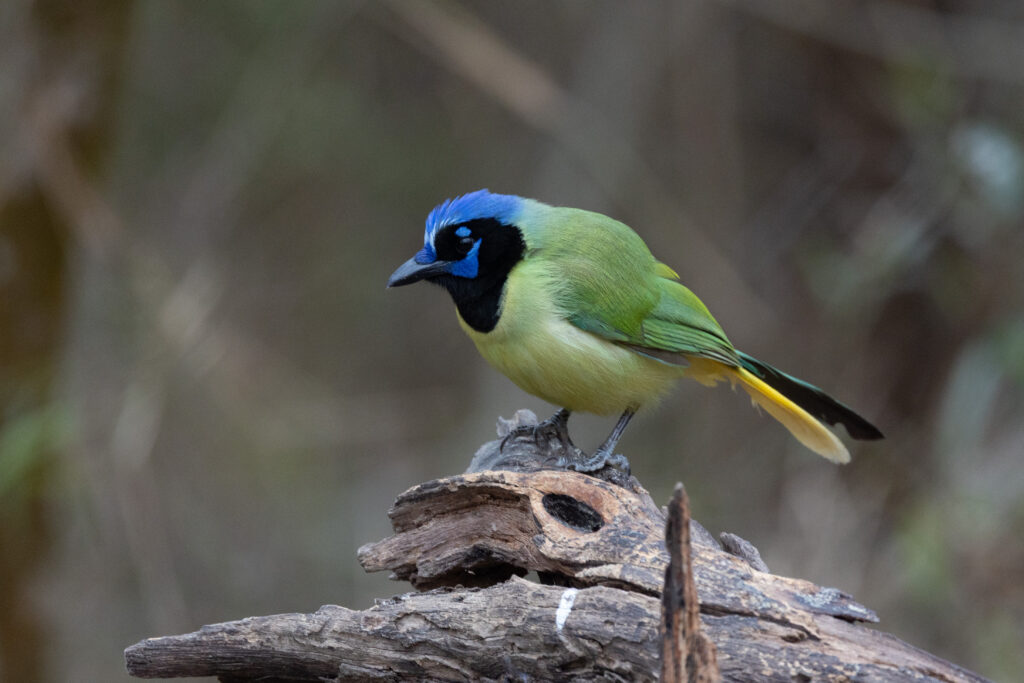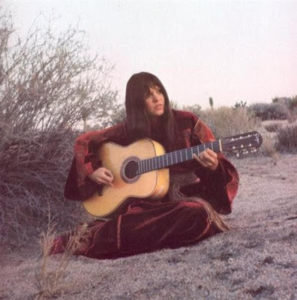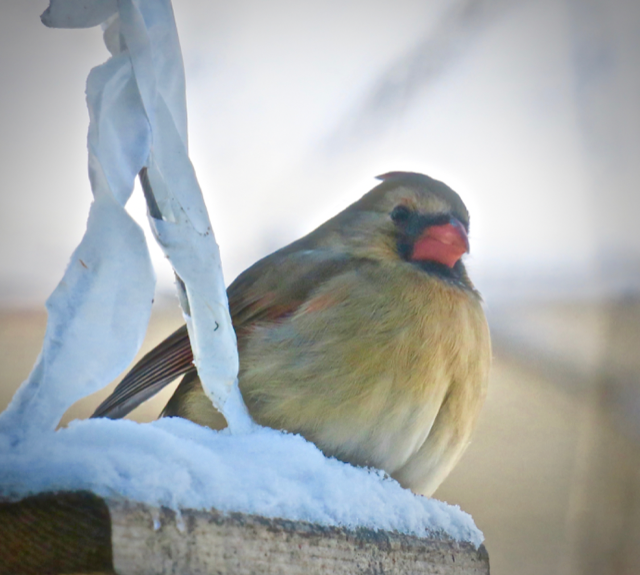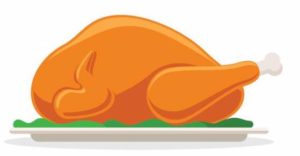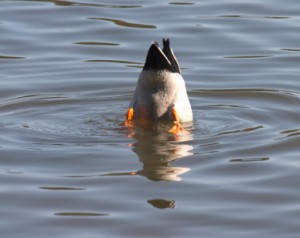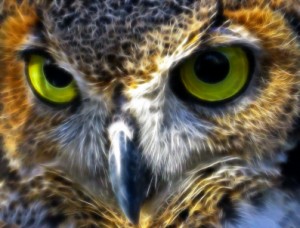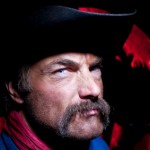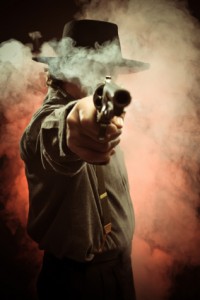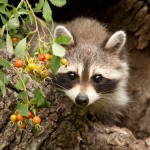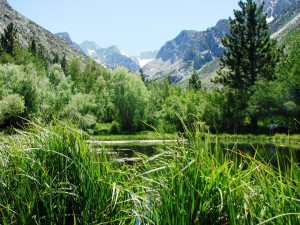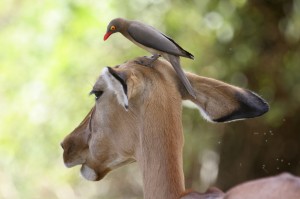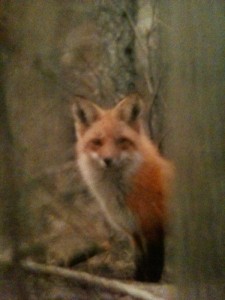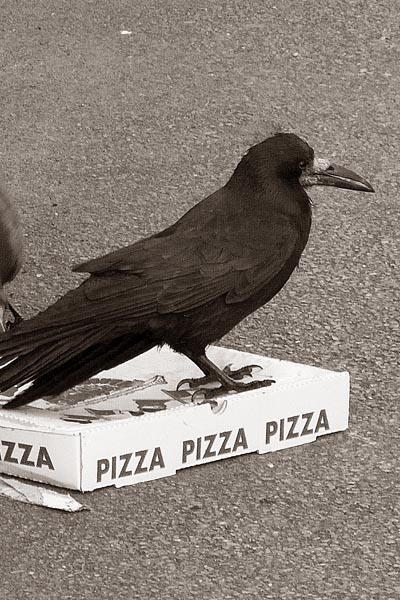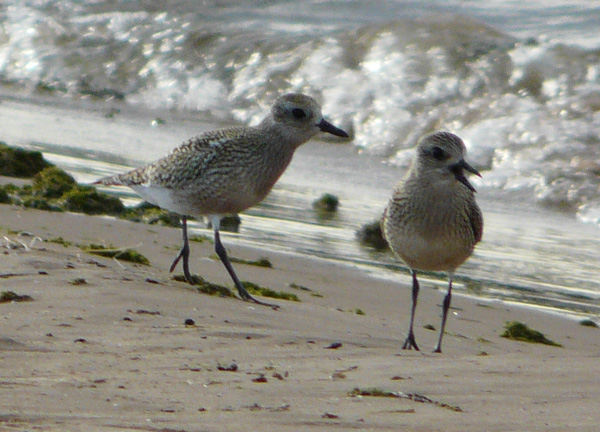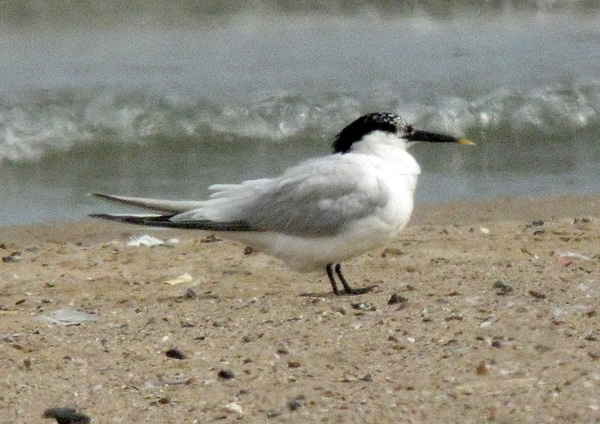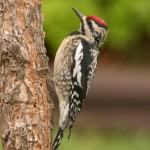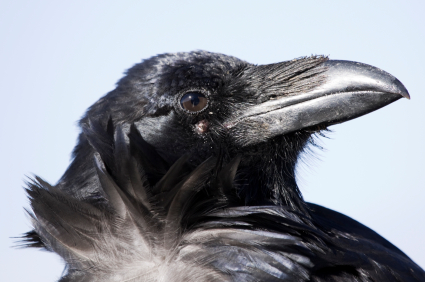Greg Neise has sent us a birding adventure. Actually, a misadventure. Thought we’d share it. Greg’s a guy who’s explored the uncharted Amazon. Illinois should be tame by comparison. But nothing’s tame when the gods of birding conspire to trip you up. For more birding adventure, information, links and other cool stuff that birders at every stage of the game need to know, check out the web forums that Greg has created. Locally, there’s Illinois Birders’ Forum, and nationally, the new North American Birders’Forum. Meanwhile, here’s a recent adventure….
“Southern Illinois Strikes Again.”
By Greg Neise
I think that Southern Illinois has its own pantheon of renegade birding gods, that somehow I have blasphemed. Maybe it was my impertinence in my quest for a Swainson’s Warbler, which no one living north of I-70 is allowed to see.
Maybe it was the great string of luck that my pal Skrentny and I had, right under their noses, last year. I don’t know…but whatever it was, I do know that I pissed them off. Royally.
Randy Shonkwiler and I set out from Berwyn, Illinois this morning at 3:30 am. Or we would have if my alarm had gone off. That should have been a clue that something was amiss, and a higher power was $*#&-ing with me.
Randy called, sitting in his car at 3:45, waking me up and initiating the fastest S-S-S ever recorded. Ever. Recorded.
Late, but not too late, we headed onto I-55 for the long haul down to the St. Louis area where we had a small laundry list of goals for the day: White Ibis (state bird for both of us), Scissor-tailed Flycatcher (state bird for Randy, year bird for me), Western Kingbird (life bird for Randy), Least Tern (life bird for Randy, year bird for me)…and maybe a Black Vulture (lifer for Randy), if they’re hanging out south of Kidd Lake.
As we were hurtling southbound, approximately 130 miles south of Chicago, Randy glanced down at his instrument panel.
“Huh… the battery light just came on”
Limnothlypis, chief of the Southern Illinois birding gods, smiled from her perch at the top of a huge dead bald cypress.
I checked the owner’s manual to see what, exactly, the battery-check light meant. As with all warning lights on the control panels of American cars, this one was pretty specific: it either meant the battery was dead, a belt was messed up or there was a Cracker Barrel 30 miles ahead on the right.
The car seemed to be doing just fine despite this warning, so we pushed on, vowing to make a stop at a service station to check it out when we got to the St. Louis area.
Limnothlypis laughed aloud and instructed one of her lesser gods, Ciris, to take action.
Suddenly the entire instrument panel (except for the passenger-side air bag light…??) went dead. The speedometer, which a second ago was teetering just a hair over 65mph, read zero. We had no fuel. The engine was revving at zero RMP and was cold as a stone.
“Huh… the dashboard just died”
Limnothlypis cackled and screamed, doubling over with laughter, and kicked a Fish Crow…just because.
We pulled off at Business 55 in Lincoln and looked for a service station. At 6:35am. On the Saturday before the 4th of July. Limnothlypis howled in delight and bitch-slapped a Barn Owl.
We found a gas station, and the friendly people there told us that there was a repair shop just 3 storefronts up the road that would be open at 8am. We waited, and at 8am, no one showed up. By 8:30, no one had shown up. We gave up.
It was at this point that I had an epiphany: WINKS!
Here we are, stranded with a dead car in central Illinois, and one of our own non-southern Illinois birding brethren just happens to be of the Winks Shell family at I-55 and Market St. in Bloomington (one of the last true full-service stations left in North America…if you’re passing through, stop, get some gas and say hi).
I called. He answered. “Hey, where you at?” I asked.
“Working…driving the tow truck”, came the reply.
GENIUS!!! We were saved! Matthew was coming to get our asses. Hallelujah.
Limnothlypis wrinkled her rusty brow. She didn’t see this coming. Hmmm…time to put Ciris back to work, and maybe send another of her minions, Eudocimus, along for backup. Ciris is reliable enough, but he’s all show sometimes, without a lot of follow-through.
An hour later we are at Winks Shell, smiling and having a great time shooting the breeze with our birding pal while Randy’s trusty Malibu gets a new alternator. We would be out of here in an hour and off to see our birds.
After about an hour, the mechanic (Matthew’s brother, John) and Matt confer. Like a doctor approaching the family after a routine hang-nail removal results in death, Matthew approaches us:
“Bad news, guys…we can’t get you a new alternator until Tuesday or Wednesday at the earliest.”
Limnothlypis erupts in delight, toppling out of her perch at the top of the dead cypress tree (a state champion) and lands in the swamp, flattening the first Illinois record of a Limpkin.
Okay…time to wrap this up: we wound up driving back to Chicago, sans alternator, and just managed to limp home. About 15 minutes into the drive, my phone rings: it’s Jim Malone.
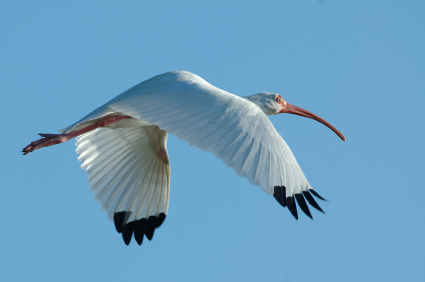
"See ya next time..."
“Hey where are you guys? We got the white Ibis, and there are two dark Ibis as well…one of them’s a Glossy”.
“AAAARRRRGGGGHHH!!!!!!” (Another state bird for both of us)
Limnothlypis rolled about in the swamp, kicking her legs in the air with unbridled joy—almost taking out an Anhinga—and she screamed to the sky:
“Y’all come back soon now, y’hear??!!??”
I’m shooting for Wednesday.
Epitaph: Randy did get a year bird: a Eurasian Collared Dove in Lincoln.
Note: For those unfamiliar with Greg’s birding gods, it might be useful to know that Limnothlypis is part of the Latin scientific fancy name for Swainson’s Warbler. Eudocimus? Same thing, but for the White Ibis. Ciris? Ask Greg where he got that one. Don’t think Painted Buntings could be involved, but who knows.
–TFBW
